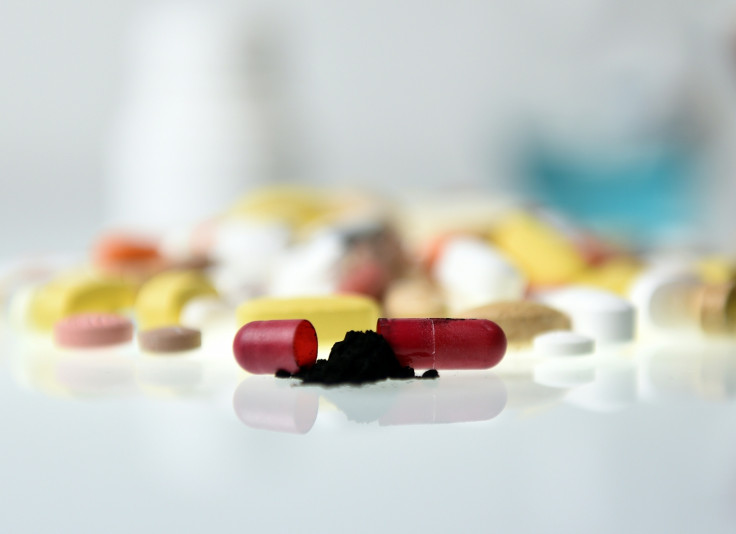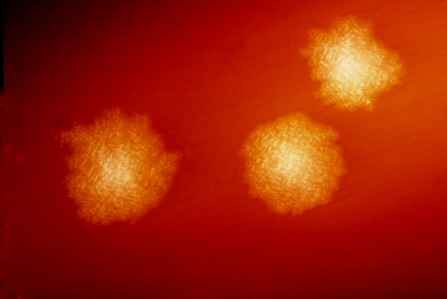Why swallowing poo pills could improve your gut health
Poo transplants taken orally could treat deadly bacterial infections, as well as anxiety, IBD and even allergies.

The human gut is an amazingly complex place, and we're only just finding out the myriad ways it affects our mental health, weight and risk of arthritis and heart disease among other conditions. For people whose gut bacteria are thrown into disarray by taking antibiotics, taking a pill containing a healthy donor's poo could fix a dangerous imbalance in bacteria.
Until recently, the faecal transplant was a fringe technique, frowned upon and put on the back-burner while we had a vast array of antibiotics at our disposal. But it's been around for 800 years, and it's starting to see a resurgence. An oral poo pill is a non-invasive way to get the faecal matter of a healthy person into your gut, to re-establish a healthy balance.
Why are gut bacteria important?
As you enter the world, passing through the birth canal, you receive your first healthy dose of micro-organisms, coating your skin in a variety of innocuous bacteria. After just a few days of life, your gut begins to be colonised, helping you digest more complex foods, absorb more nutrients and grow. While the majority of your new found colonists will be at best beneficial and at worse harmless, this delicate harmony exists as part of a vast and interconnected web of growth and inhibition.
Despite years of advertising for 'healthy' bacterial drinks and products, the word bacteria is still very much synonymous with infection and ill-health. However, if there were no bacteria in your gut, not only would your digestion be affected, but your entire brain and body too.
Mice born and bred in germ free 'bubble' environments show unusual behaviour and very poor health. The bubble environment appears to even affect areas such as memory and emotion, suggesting there is a link between the gut and the brain.
The right balance
We know that many things shape the content and the function of the ecosystem of microorganisms that live in your gut. Genetics play a role, but so does your diet and the environment that you live in.
This field of science is very much in its infancy, but research has shown that imbalances in the ecosystem are associated with allergies, chronic inflammatory conditions such as Crohn's diease and even mental health disorder. Many believe that the 'westernised way of life' with diets low in fibre, high antibiotic use and an obsession with cleanliness may be disturbing the balances of bacteria at an unprecedented scale.
After a disturbance, the check-and-balance relationship can be upended, leading to unrestrained growth of previously harmless bacteria. The most drastic example of this can be seen when patients that take antibiotics become unwell because of bacterium called Clostridium difficile, also known as C. diff.
This bacterium lives harmlessly in the gut of around about 3% of the population. The reason it doesn't cause problems in these people is because the other bacteria in the gut keep C. diff in check. However, when these people take certain antibiotics that wipe out the normal balance of bacteria in the gut, C. diff gets a chance to proliferate and cause problems. Sadly, it can often be deadly.

Repairing the damage
First line treatment for C. diff infection involves rehydration, removal of the inciting antibiotic and then ironically, more antibiotics. Whilst often effective in the short term, this course of treatment doesn't solve the underlying problem – imbalances of bacteria in the gut. Many patients experience recurrent infections because of this.
Hope comes however, from an emerging medical treatment called Faecal Microbiota Transplantation (also known as FMT or a 'poo transplant'), which involves the transfer of stool from a healthy person into a patient. FMT was first documented around the year 1200, and has seen a resurgence in popularity coinciding with an increased desire to avoid antibiotics and prevent recurrence.
Remarkably, clinical trials have shown that the treatment of recurrent C. diff infection the transplantation of healthy donor faecal material has had success rates of around 90%.
These results have prompted a rapidly growing demand for FMT among both patients and clinicians. There have been successful pilot studies and randomised controlled trials showing that FMT might also benefit other conditions such as inflammatory bowel disease and even autism. However, access to pre-screened material is currently limited and FMT is administered through a variety of invasive medical procedures, such as colonoscopy.
Why take it orally?
We are still at the tip of an iceberg of knowledge, figuring out just what works and why. We can still only isolate and grow less than 5% of all the species that live within the gut, requiring expensive sequencing technology to determine their presence from fragments of unique DNA they leave behind in our test tubes.
As faecal transplants become more popular, there is an unmet need for an oral product that doctors in the NHS can order. EnteroBiotix, a biotechnology company based at the University of Aberdeen, recently raised £500,000 to develop an encapsulated, orally administered version of FMT.
It is thought that these capsules will make it easier to receive an FMT and could allow for delivery at various points in the digestive tract for more precise delivery of important microbes. EnteroBiotix is also establishing a platform that will allow patients to safely bank their own stool for reinstatement at a later date. This treatment, termed autologous FMT, may have particular promise in patients undergoing treatment for blood cancer or infections of bones and joints.
This situation is set to change with the advances in how we can manipulate our resident bacteria. Soon they will be able to survive the journey into a pill, through the stomach, and find a new home where they belong.
Christopher Mosedale is operations manager of the biotech company EnteroBiotix and a medical student at the University of Glasgow. EnteroBiotix tweets at @EnteroBiotix.
© Copyright IBTimes 2025. All rights reserved.





















